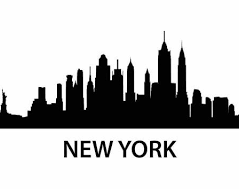New York targets the fashion industry with a proposed legislation on sustainability and social responsibility, the Fashion Sustainability and Social Accountability Act, presented in The National Law Review on January 24, 2022
In the latest example of the government attempting to regulate the environmental and social impact of public and private businesses, New York lawmakers are weighing a bill that targets the fashion industry. If passed, the law would be the first of its kind anywhere in the world.
Who Does the Legislation Apply to?
The Fashion Sustainability and Social Accountability Act applies to all fashion retailers and manufacturers, including apparel and footwear companies, that conduct business in New York and have global revenues more than $100 million.
What Does the Legislation Require?
The legislation, if passed, would require fashion retailers and wholesalers to conduct due diligence and make significant public disclosures regarding their environmental and social impact, including companies within their supply chain. Specifically, companies that operate in the fashion industry will be required to do the following:
- Canvass and map at least fifty percent (50%) of their supply chain, from their producers of raw materials to the supply partners who help assemble, produce and ultimately ship the final product;
- Conduct due diligence and identify specific partners within their supply chain with significant adverse environmental impact, including energy consumption, greenhouse gas emissions, water use and chemical use;
- Develop and publish an environmental and social sustainability report that identifies the company’s policies and processes to identify, prevent, and mitigate adverse environmental and social impact within its supply chain;
- Develop and publish the actions that have or will be taken to reduce adverse environmental and social impact, including estimated timelines and specific goals and targets, all of which must be independently verified;
- Report the median wages paid by their supply chain partners and disclose how those wages compare with the local minimum wage and living wages in the jurisdictions where those partners operate;
- Report the annual volume of material produced by the company and its supply chain partners – broken down by material type, which must be independently verified;
- Report the amount of recycled material utilized by the company and its supply chain partners, which must be independently verified; and
- Post all of the required disclosures on the company’s website with a link appearing on the landing page or home page of the website.
What Are the Penalties for Noncompliance?
The proposed legislation authorizes the New York Attorney General to enforce the law and to seek injunctive relief and money damages. Companies that do not comply can be fined up to 2% of their annual revenues and will be identified in an annual list of non-compliant companies.
What’s the Timing?
The legislation is currently in committee and is expected to be brought to a vote as early as this spring and likely before June 30. If the bill passes, companies that do not comply will have 12 months to comply with the supply chain mapping requirement and 18 months to comply with the reporting requirements.



